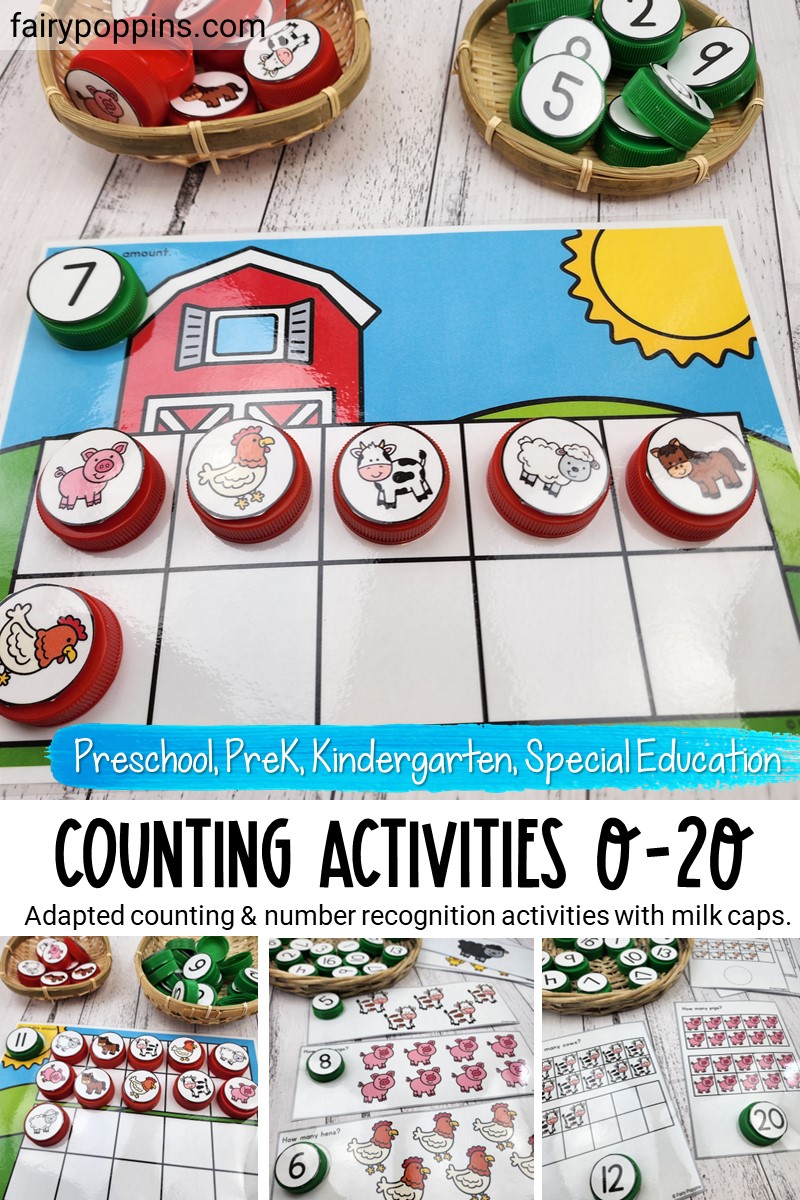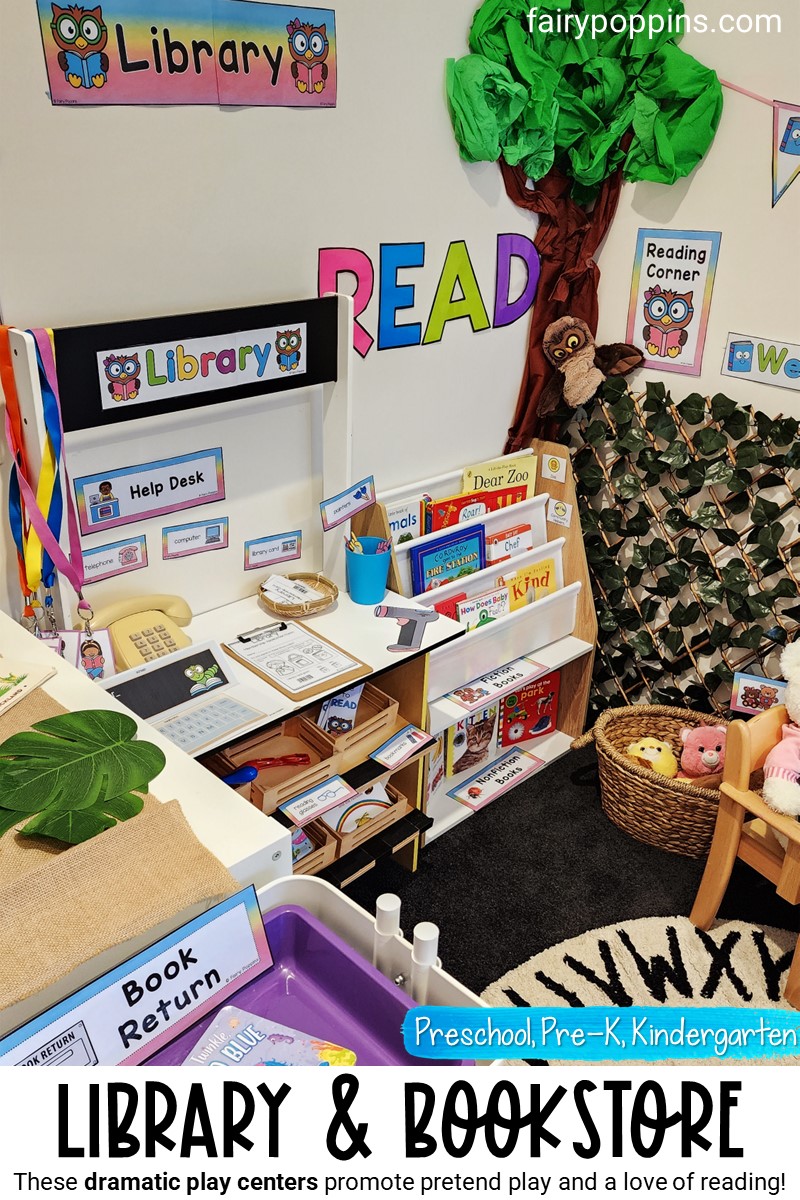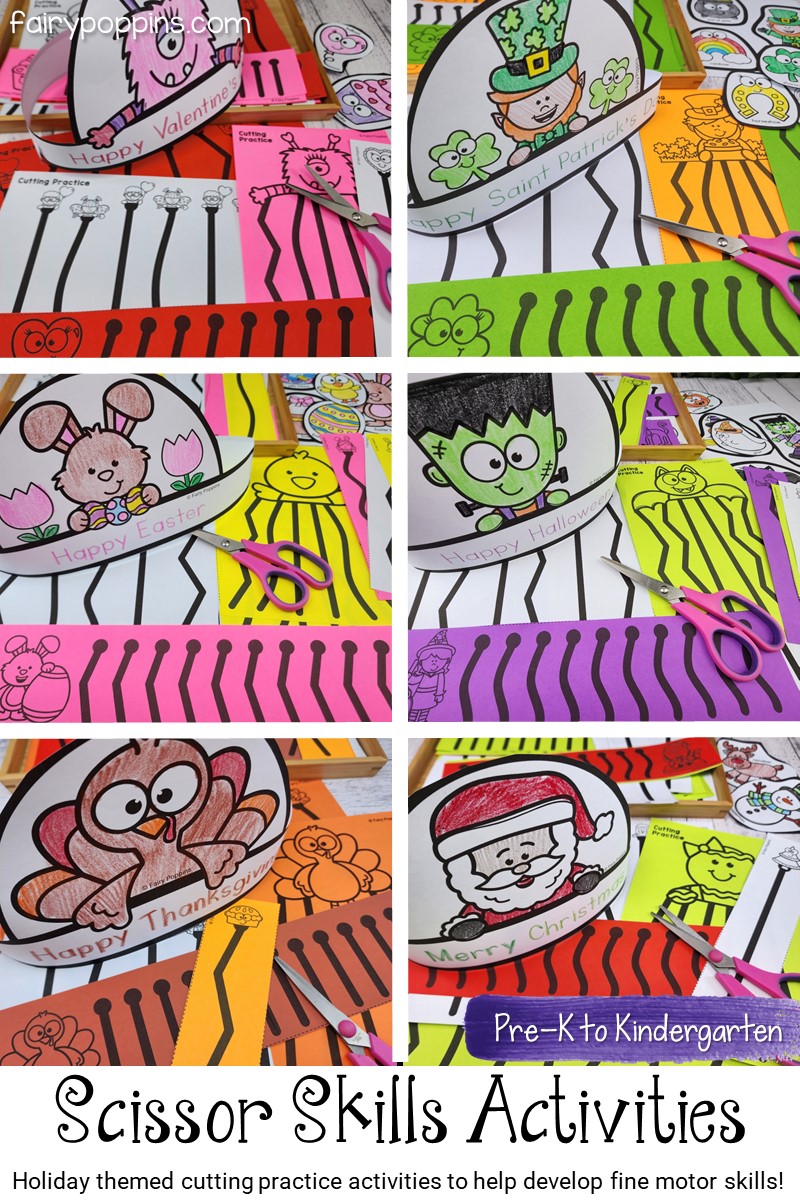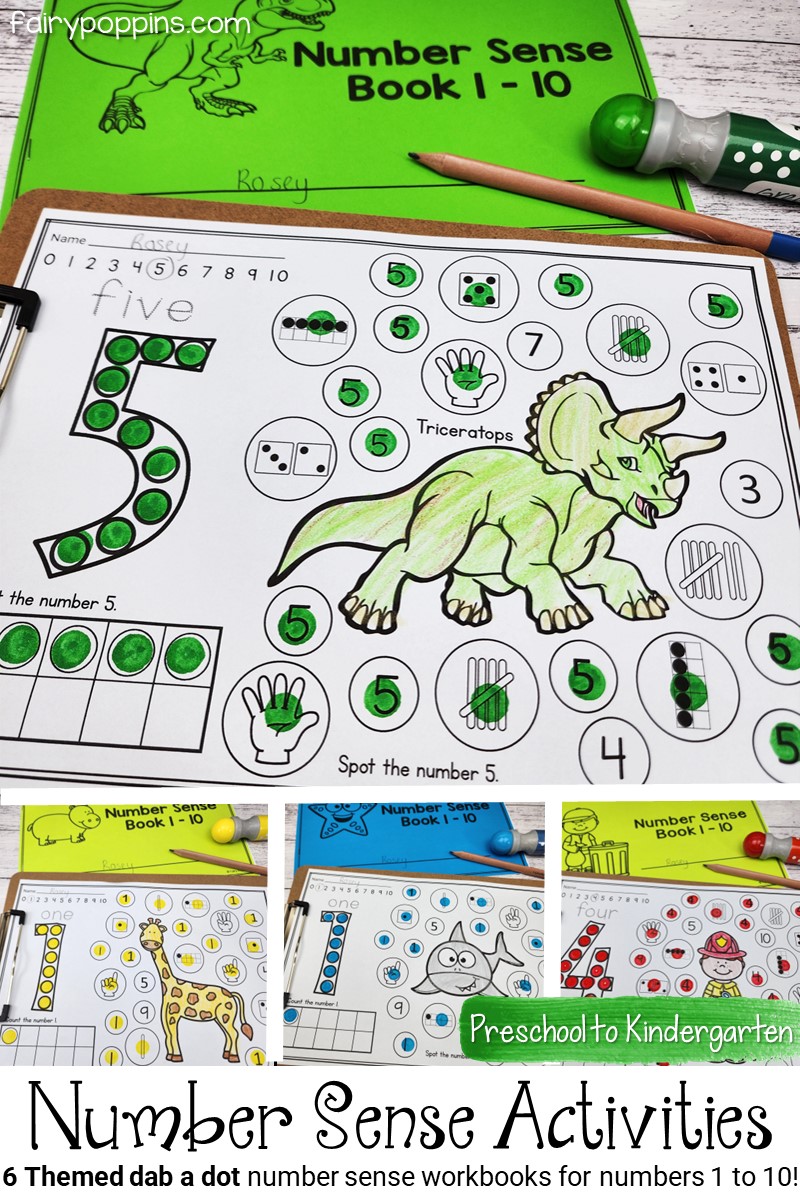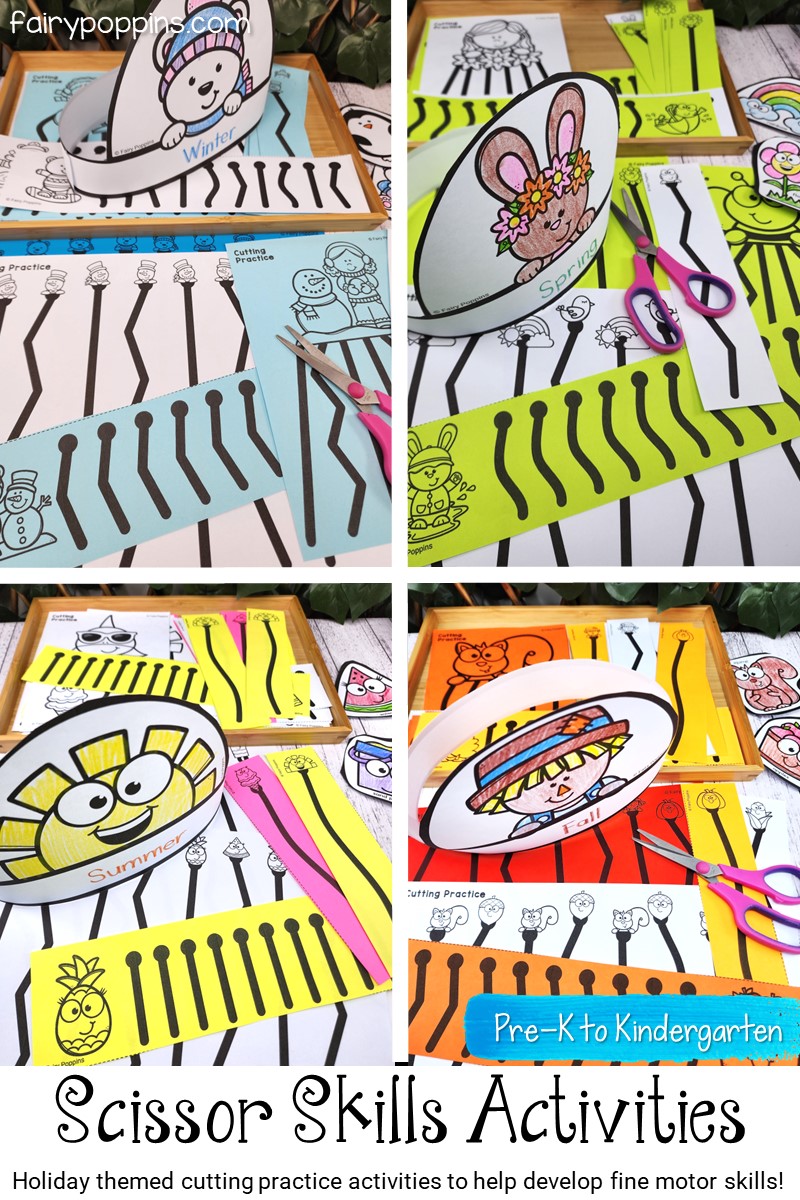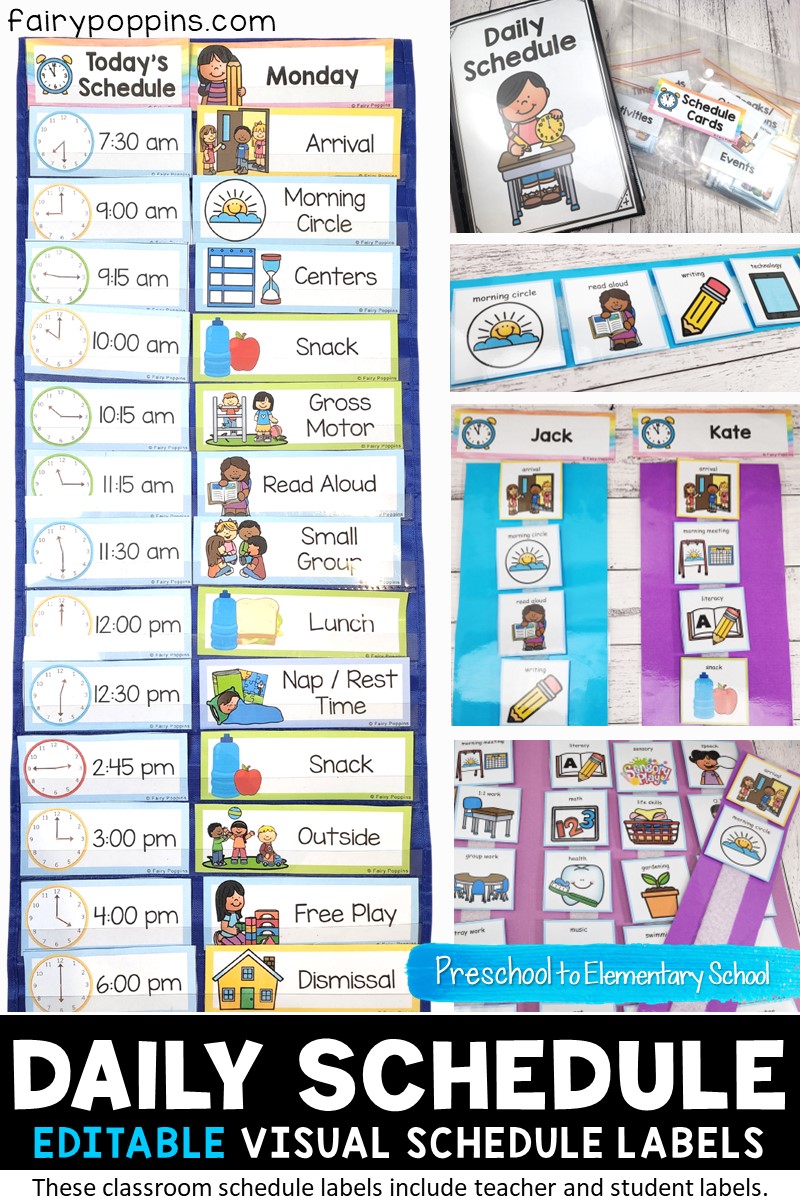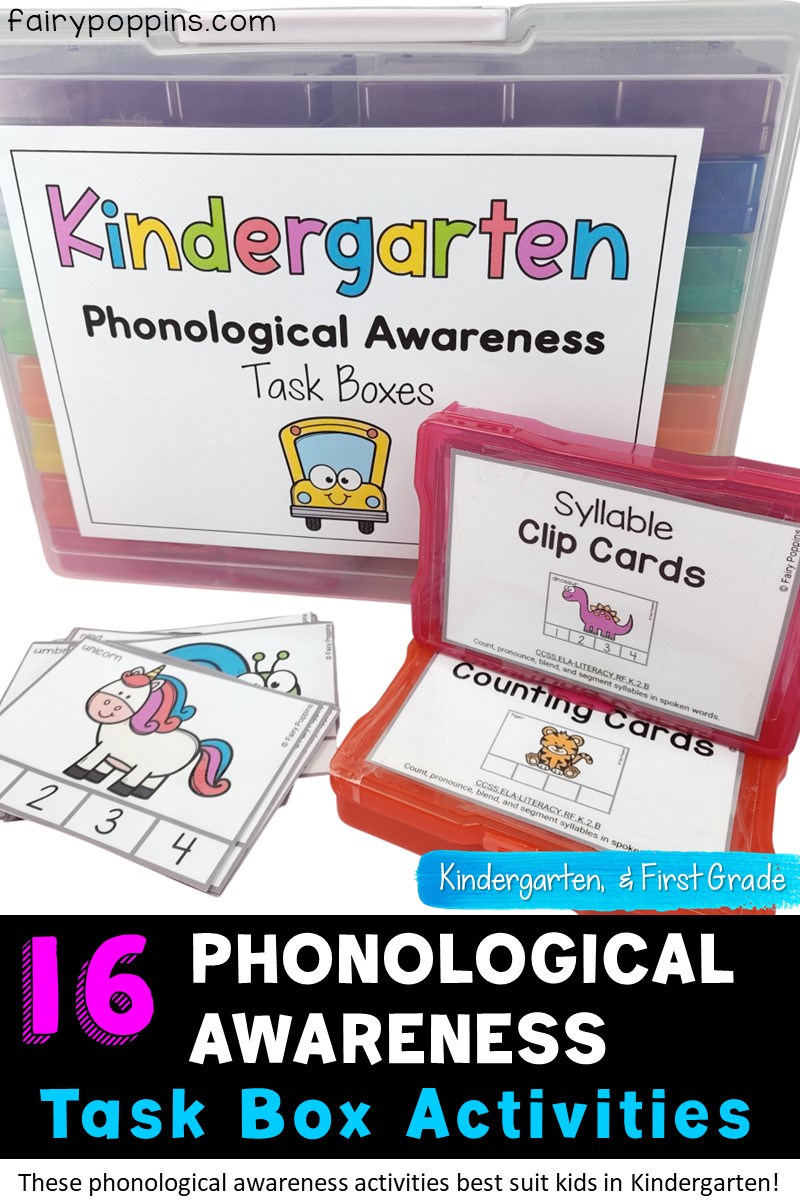These adapted counting activities kids identify numbers 0-20 using recycled milk caps (or bottle lids). They’re great for kids in Preschool, Pre-K, Kindergarten or Special Education.
Library and Bookstore Dramatic Play
This Library and Bookstore dramatic play center is a fun addition to National Reading Month or Read Across America activities. It’s suitable for kids in Pre-K, Preschool and Kindergarten, although I’m sure older children will love it too!
Scissor Skills & Cutting Practice Activities for Kids
These holiday themed cutting practice activities help kids develop scissor skills. They’re a fun addition to Preschool, PreK and Kindergarten fine motor centers.
Kindergarten Number Sense Activities (1-10)
These Kindergarten number sense activities help kids learn about 1 – 10 using dot markers! They make a fun addition to Preschool, Pre-K or Kindergarten math centers.
Seasonal Scissor Skills & Cutting Practice
These season themed cutting practice activities help kids develop scissor skills. They’re a fun addition to Preschool, PreK and Kindergarten fine motor centers.
How to Create a Visual Schedule for the Classroom
Creating a daily schedule with pictures is a must have in special education and early learning classrooms. A visual schedule helps kids feel secure by helping them to anticipate what comes next throughout the day. I’ve put together a quick guide to help you create a customized daily schedule for your classroom.
Phonological Awareness Activities for Kindergarten
These phonological awareness activities help kids in kindergarten to develop phonemic awareness skills. They include task box activities that target syllables, rhyming, onset rime, phoneme substitution, blending, segmenting and isolating phonemes in CVC words.
Halloween Feelings Activities
These Halloween feelings activities help kids learn to identify basic emotions. The Halloween activities include a set of playdough mats and worksheets. These are a fun addition to Halloween centers in Pre-K, Preschool and Kindergarten!
Feelings – Daily Check In File Folder Activities
These feelings activities include visual aids that can be made into a file folder. The activities help kids learn to identify and check in with their emotions on a daily basis. They’re suitable for kids in pre-k, preschool, kindergarten or children with special needs.
Feelings Activities for Kids (Emotions File Folder)
These feelings activities include visual aids to help kids check in with their emotions on a daily basis. The activities can be made into file folders. They’re great for kids in pre-k, preschool, kindergarten or children with special needs.

